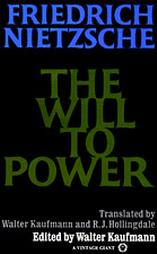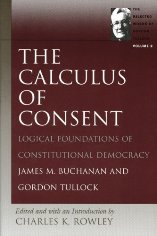This week in my Contemporary European Philosophy class we are discussing Friedrich Nietzsche’s Genealogy of Morals. I’ve been doing some related re-reading and came across this line from The Will to Power: 
“The values of the weak prevail because the strong have taken them over as devices of leadership” (section 863).
In the first essay of Genealogy of Morals (1887), Nietzsche raises a historical puzzle. He has contrasted the master morality of power and assertiveness with the slave morality of selflessness, and humility. Master morality developed in Greece and especially Rome, while slave morality was developed by peoples around Jerusalem. Over the generations and eras, sometimes the master morality has dominated and sometimes the slave morality has prevailed.
But in modern times the puzzle is how slave values have the currency they do. Democracy (Everyone’s equal!), socialism (Feel sorry for the poor!), and religion (Pray for salvation in the afterlife!) are widespread modern doctrines that Nietzsche sees as variants on slave morality. But how could a morality of weakness overcome a morality of power?
Public Choice Theory analyzes politics on the assumption that politicians are motivated by self-interested power-seeking. The kind of “self-interest” it typically assumes is zero-sum, describing agents whose actions benefit themselves at the expense of others. Public Choice is, as James Buchanan puts it, “politics without romance.” Public Choice was developed academically by Buchanan and Gordon Tullock in works such as The Calculus of Consent: Logical Foundations of Constitutional Democracy (1965), and Ayn Rand portrayed it novelistically in Atlas Shrugged (1957).
Public Choice is, as James Buchanan puts it, “politics without romance.” Public Choice was developed academically by Buchanan and Gordon Tullock in works such as The Calculus of Consent: Logical Foundations of Constitutional Democracy (1965), and Ayn Rand portrayed it novelistically in Atlas Shrugged (1957).
Many strategies are possible in a democracy, and one strategy is to tell voters what they want to hear, knowing that one can get the power one wants from them — but be able to use that power in a way that benefits oneself. For example, if many voters favor a particular welfare benefit, a politician can campaign in favor of that welfare benefit whether he agrees with it or not, knowing that it he will be elected, be able to control the flow of funds, use the program to dispense favors, expand his power constituency, and so on.
Translating that into Nietzschean language: savvy will-to-power leaders can use the language of slave morality as a device to maintain or increase their mastery. That can help explain the historical puzzle: slave values have currency in contemporary times because our political masters have learned to manipulate us with a moral code that they use but don’t actually believe.
Related:
Sections 21-26 of my Nietzsche and the Nazis. Description: Friedrich Nietzsche (1844-1900) is famous for his statement that God is dead and his provocative account of Master and Slave moralities — and for the fact that Adolf Hitler and the Nazis claimed that Nietzsche was one of their great inspirations. Were the Nazis right to do so or did they misappropriate Nietzsche’s philosophy? In this book, based on the 2006 documentary, Professor Stephen Hicks asks and answers the following questions:  * What were the key elements of Hitler and the National Socialists’ political philosophy? * How did the Nazis come to power in a nation as educated and civilized as Germany? * What was Friedrich Nietzsche’s philosophy the philosophy of “Live dangerously” and “That which does not kill us makes us stronger”? * And to what extent did Nietzsche’s philosophy provide a foundation for the horrors perpetrated by the Nazis?
* What were the key elements of Hitler and the National Socialists’ political philosophy? * How did the Nazis come to power in a nation as educated and civilized as Germany? * What was Friedrich Nietzsche’s philosophy the philosophy of “Live dangerously” and “That which does not kill us makes us stronger”? * And to what extent did Nietzsche’s philosophy provide a foundation for the horrors perpetrated by the Nazis?
“Egoism in Nietzsche and Rand” [pdf]. Abstract: “Philosophers Friedrich Nietzsche and Ayn Rand are often identified as strong critics of altruism and arch advocates of egoism. In this essay, Stephen Hicks argues that Nietzsche and Rand have much in common in their critiques of altruism but almost nothing in common in their views on egoism.”
James Buchanan’s “Public Choice: Politics Without Romance” [pdf]: Buchanan’s survey of development of public choice theory as a field.